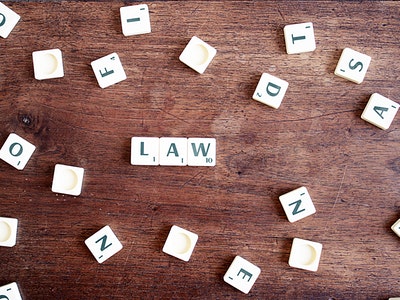An Explanation of The Lasting Power of Attorney and Why it is Very Important to Have

What is it?
It is a legal document that gives permission to a person (Donor) to assign another (Donee) to decide on his or her behalf. There are two types of LPA, and these are:
- Health and welfare
- Property and financial affairs
Decisions might have to be finalized not at the same time by different Donees, and based on criteria. The only time a health and welfare type of LPA is used is when the Donor does not have the capacity. The property and financial affairs LPA can be used even while the Donor still has the ability. Typically, most of the LPAs are executed in relation to the property and financial affairs.
The health and welfare LPA appoints a Donee to handle decisions about medical care needs in the future like moving you to a care home, etc. It only becomes effective when the person is no longer able to decide on their own.
The property and financial affairs LPA appoints a Donee to manage the Donor’s bank or building a society account, collecting benefits, bills, or property. This type of LPA becomes effective once the Donor gives permission.
Why Would You Need to Get an LPA?
Illnesses and accidents can come into someone’s life anytime. Which is why arranging an LPA is essential to all adults, ideally when your health is still good. Anyone who is above 18 years old can already appoint a Donee.
Imagine if you unexpectedly experience an illness or accident that causes you to lose your mental capacity. What will happen with your care? Your property? Your assets? In this kind of scenario, your loved ones should apply in courts before taking any significant decisions on your wellbeing and health. This process could be lengthy and stressful for them.
Those who are in civil marriage or partnership might think their partner can handle finances and decide on healthcare in case they are unable to. This is not really the case. If someone did not execute an LPA, their partner, friend or relative has to apply at the court to be appointed.
The Authority of the Donee Under LPA
Under the LPA, a Donee can make most of the legal decisions about finances which is subject to restrictions. This includes selling or buying the property of the donor, investment management or claiming of benefits.
Particular decisions like making gifts have limitations under the Act, but others like making a will or settlement are forbidden. Since the authority given to the Donee is very broad, it is prevalent among Donors to give conditions based on their preferences.
For instance, a Donor might not want the LPA to be used while they can still make major decisions. However, restrictions can lead to intended problems, and the LPA becomes unworkable or invalid.
LPAs are important in preparing for life’s latest stages, where the risk of incapacity is greater because of degenerative mental conditions like dementia.
A physical illness like stroke may also cause a person to lose their capacity to make decisions or even communicate. If an LPA was not done, then the application has to be made to have a deputy appointed.
Although, this is the court’s choice and not the individual, which involves a lot of effort and expenses with the stress involved in this. Of course, getting old does not automatically mean a person will lose their mental capacity.
In Case the Donee Does Not Follow Instructions
If the Donee acts inappropriately or fails to follow instructions, these can be done by you or your monitor:
- Contact the Office of the Public Guardian and complain about how the Donee is abusing the authority you gave
- Tell the Court of Protection that they should no longer be a Donee, and if you win, they will be removed from the LPA
The Court of Protection can remove the Donee’s powers if they commit:
- Fraud
- Not acting according to your best interests
- Dishonesty
- Unable to act as the Donee because of an illness or others
The Court of Protection can:
- Give the Donee instructions on what they should carry out based on your wishes instructed in the LPA
- Decide on what your LPA means and what powers it can give your Donee if a disagreement is encountered about its meaning
Dementia Declines Faster Than Securing an LPA
Dementia could mean that the mental capacity of a person could decline quickly. In case you develop dementia before you are able to secure an LPA, it could take months to get a Deputy order. While the order has not yet been released, your loved ones cannot make any legal decisions on your behalf.
How to Prepare an LPA Form
Before starting the process, which means submitting an LPA form, you should decide if you want to do it alone or hire lawyers in Singapore to do it for you. If you are unsure about every step and proceeding, it is best to consult a solicitor. Doing the paperwork yourself can save you legal fees, but you are going to be accountable for not completing documents at a high standard. Not completing the paperwork correctly could lead to issues when an LPA form is needed to decide on your care. You might want to consult an advisor before completing your own paperwork.
Requisites for LPA
- The person who is executing the LPA
- The person who was nominated to be the Donee
- Witnesses to the person signing the LPA and Donee
- The ‘certificate provider’, the person who confirms the person is executing the LPA by their own choice and fully understands everything. It should be someone they have known for at least 2 years, or it could be a doctor, solicitor, or social worker. This could also be the person who was the witness to the applicant signing the form.
The witnesses and providers have to be certified and at least 18 years old. The person getting an LPA cannot be a witness. If they want to become a witness, the one applying for the LPA should name up to 5 people who will know about it. The applicant has to complete another form and send the copies to the people mentioned before they register the LPA. They are not allowed to post it or have it handed it to them. The people named have 3 weeks to register any of their objections and concerns. This helps check that the one applying for the LPA is not being pressured to make it. Naming those people who will be notified is the applicant’s choice and they do not have to fill out this part.
Financial Abuse
The Donor has to be aware of how much trust is required from the Donee and abuse can happen. When the LPA is given, it is hard to catch abuse and these problems only appear after it happened.
Donees do not undergo a formal check, which is actually unregulated. The Donee will only be investigated if a relative, local authority or professional raises a concern and they will be the whistleblower.
Even if a lot of Donors choose a family member(s) to be their Donee, this is a personal decision they are allowed to make. They can appoint someone else instead of a family member to avoid any conflict of interest. They should informally tell family members or their closest friends that they made an LPA, who the Donees are how they want the authority used.
Carefully drafting the instructions lessens the chance of financial abuse. For instance, the Donee is required to produce yearly accounts to someone independent. Financial abuse can only be investigated if someone is aware of it, or is suspicious and then files a report. Therefore, having the involvement of other relatives, professionals or friends provides more security and transparency.
Loved Ones Can Decide on Who Will be Empowered to Make the Financial Decisions
Some people’s financial circumstances may be more complicated than others. It’s also possible that they have large businesses and wealth that need several individuals. For instance, the Donor may own a company with a couple of shareholders, or a couple of properties with several investors. Therefore, it is not only a matter of straightforward empowerment given to the appointed Deputy. Aside from that, some families might have a dispute on who will act as Deputy to handle decisions. So, the entire process can become long and tedious. It can cause a lot of unnecessary issues that could lead to financial losses.
The Donee Will Have Full Control Over Assets and Decisions is a Misconception
First of all, even if there is an LPA, the Donor can revoke the LPA anytime while their mind is still clear. The Donee can only assume power when the Donor is no longer capable of making wise judgments. The authority that the Donee received and the money which can be accessible becomes restricted. In case the Donee abuses their power, or neglects the responsibilities, their power could be removed. When the person is making the LPA, he or she can name a monitor who makes sure that the Donee is following the instructions and not abusing their power. They can report or complain about the Donee to the court if they act suspiciously. Also, the Donor can notify people about the LPA so they will know who to blame if the Donee does not perform well.
The Donee should think twice about doing anything illegal because people can easily report him or her. So, it is not true that the Donee has full control of everything.
Reasons Why You Should Make an LPA
For a lot of people, the LPA is only a precaution, and it never gets used. The LPA is considered to be a convenient device that people are encouraged to execute to prepare them for old age. Although, most of the time, they are made too quickly because the forms are downloadable from the internet. In addition, they are made when a person is vulnerable or under emotional pressure.
Here are other reasons you should consider:
- Your bank accounts will be frozen when you die. Any of your family members cannot decide on your personal welfare and your financial and business matters.
- If your family depends on you, they do not have access to your funds to pay your mortgage, hospital bills, and others.
- Your family needs to apply in court so that someone can be appointed as Deputy to handle your affairs. This process is expensive and time-consuming.
- You will not have anything to worry about in case you become mentally incapacitated.
- Those who depend on you will be taken care of.
Choose Your Donee Wisely
- Your Donee should be someone you can fully trust. A reliable person who has the competency to make decisions on your behalf only when you lose or lack mental capacity.
- The Donee should be at least 21 and not bankrupted because he or she will handle property and financial affairs.
- Your LPA should be registered with the Office of Public Guardian to make it legal and valid.
Making a Lasting Power of Attorney is a wise decision you can make while you are still in good health. You do not want to worry about your important affairs in case something happens to you.










